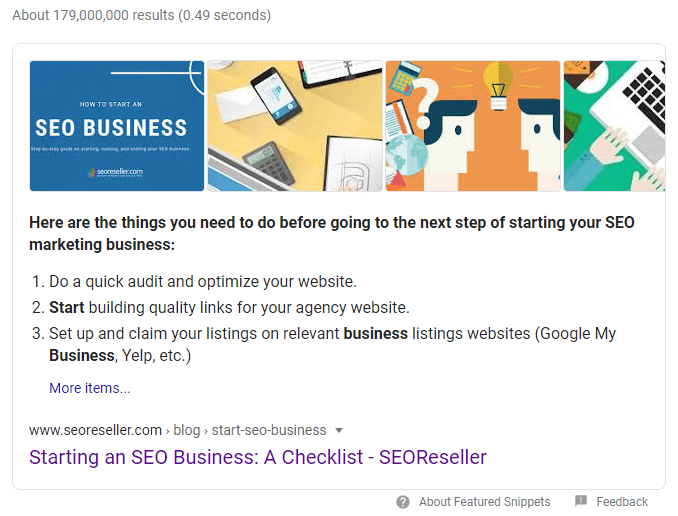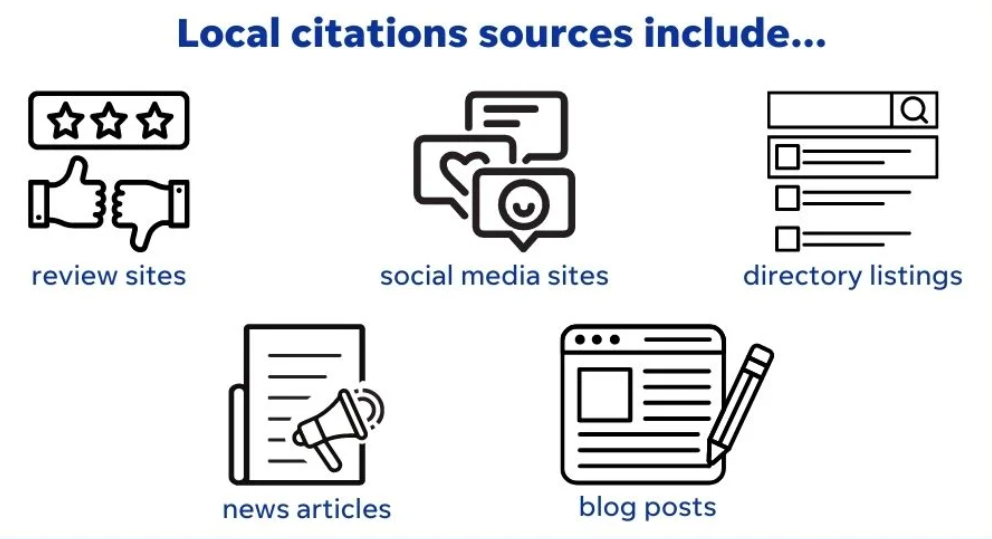Uncover the insider secrets of SEO marketing for small businesses and learn how to outshine the big competition online today.

Image courtesy of via DALL-E 3
Table of Contents
Introduction to SEO Marketing
SEO marketing is a powerful tool for small businesses looking to compete with the big leagues. In this digital age, where everything is just a click away, it is crucial for businesses to make their online presence known. SEO, which stands for Search Engine Optimization, plays a significant role in ensuring that your website is easily found by potential customers on search engines like Google.
What is SEO?
SEO is all about making your website show up at the top of search results when someone types in a query related to your business. Imagine you have a shop selling handmade jewelry. When someone searches for “handmade jewelry near me” on Google, SEO helps your website appear on the first page of results, making it more likely for customers to click on it.
Why SEO Matters for Small Businesses
For small businesses, competing with large companies can be intimidating. However, with a solid SEO strategy in place, small businesses can level the playing field. SEO helps small businesses attract more customers, increase website traffic, and ultimately grow their business. By optimizing their website for search engines, small businesses can reach a wider audience and stand out in the digital marketplace.
Understanding Keywords
Keywords are the words and phrases that people type into search engines like Google when they are looking for information. These words are essential for helping your website appear in search results when someone searches for something related to your business. By using the right keywords on your website, you can make it easier for potential customers to find you online.
Choosing the Right Keywords
When selecting keywords for your website, it’s crucial to think about what your target audience is searching for. Consider what words they would use to find your products or services. It’s also beneficial to choose keywords that have high search volume but low competition. This way, your website has a better chance of ranking higher in search results. Remember, picking the right keywords is a key element of a successful SEO strategy for small businesses.
Creating Great Content
Creating great content is a crucial aspect of SEO marketing for small businesses. By crafting valuable and engaging content, you can attract more visitors to your website and improve your search engine rankings. Let’s explore the different types of content and why it is essential for your online success.

Image courtesy of www.seoreseller.com via Google Images
Types of Content
There are various types of content you can create to enhance your online presence. Blog posts, videos, and social media updates are popular choices that can help you connect with your audience in different ways.
Blog posts allow you to share detailed information about your products or services, industry trends, and valuable tips that can benefit your audience. Videos are engaging and can showcase your products or demonstrate how to use them. Social media updates help you stay connected with your followers and drive traffic to your website.
Why Good Content Matters
Good content not only provides value to your audience but also plays a significant role in how search engines rank your website. When you consistently create high-quality content that is relevant to your target audience, you increase your chances of ranking higher in search results.
Search engines prioritize websites that offer valuable and relevant content to users. By focusing on creating content that educates, entertains, or informs your audience, you can build a loyal following and attract more visitors to your website over time.
On-Page SEO Techniques
When it comes to improving your website’s visibility on search engines like Google, on-page SEO techniques play a crucial role. These techniques focus on optimizing elements directly on your website to enhance its search engine ranking. Let’s explore some essential on-page SEO strategies that can help your small business compete effectively with larger companies.
Using Meta Tags
Meta tags are snippets of text that describe a page’s content; they don’t appear on the page itself but in the code. These tags provide information to search engines about your website’s content. Including relevant keywords in your meta tags can help search engines understand your content better and improve your site’s visibility in search results.
Optimizing Headings and Images
Headings (such as H1, H2, H3, etc.) are essential for organizing your content and making it more readable for both users and search engines. Use headings to structure your content logically and include relevant keywords to further boost your SEO efforts.
When it comes to images, optimizing them can also have a significant impact on your SEO. Make sure to use descriptive file names and alt text that includes relevant keywords. This not only helps search engines understand your images but also improves accessibility for users who rely on screen readers.
Off-Page SEO Strategies
Building backlinks is an essential off-page SEO strategy. Backlinks are like virtual upvotes for your website, showing search engines that other sites trust your content. When reputable websites link back to yours, it tells search engines that your website is a valuable resource worth ranking higher in search results.

Image courtesy of www.pamten.com via Google Images
Using Social Media
Social media isn’t just for sharing cute puppy videos; it’s also a powerful tool for boosting your SEO. When you share your website content on platforms like Facebook, Instagram, or Twitter, you’re increasing visibility and driving traffic back to your site. The more engagement your posts receive, the more signals search engines get that your content is relevant and valuable.
Collaborating with Influencers
Influencers have the power to sway opinions and drive traffic to your website. By partnering with influencers in your industry, you can tap into their loyal followers and reach a broader audience. When influencers share your content or recommend your products, it not only boosts your credibility but also sends positive signals to search engines, improving your SEO ranking.
Local SEO Tips
Setting up a Google My Business listing is crucial for local SEO. It helps your business appear on Google Maps and local search results. To get started, go to the Google My Business website and follow the steps to create your listing. Make sure to provide accurate and detailed information about your business, such as your address, phone number, and business hours. Add high-quality photos to showcase your products or services. By optimizing your Google My Business listing, you can increase your visibility in local searches.
Encouraging Customer Reviews
Customer reviews play a significant role in local SEO. Positive reviews not only build trust with potential customers but also improve your rankings in search results. Encourage your satisfied customers to leave reviews on platforms like Google, Yelp, or Facebook. You can ask for reviews in person, through email campaigns, or by including a call-to-action on your website. Respond to reviews promptly, whether they are positive or negative, to show that you value feedback and customer satisfaction. By actively seeking and managing customer reviews, you can boost your local SEO efforts.
Monitoring Your SEO Progress
Once you’ve set up your SEO strategy, it’s essential to track how well it’s performing. One way to do this is by using analytics tools like Google Analytics. These tools provide valuable data on your website traffic, user behavior, and where your visitors are coming from. By analyzing this information, you can see what’s working well and identify areas for improvement.

Image courtesy of contentatscale.ai via Google Images
Adjusting Your Strategy
Based on the insights you gather from analytics tools, you can make informed decisions to enhance your SEO performance. For example, if you notice that certain keywords are driving more traffic to your site, you can focus on optimizing content around those keywords. If you find that a particular web page is not getting much traffic, you can revamp the content or improve its visibility. By continuously monitoring your SEO progress and making necessary adjustments, you can ensure that your small business stays competitive in the digital landscape.
Tips for Competing with Big Companies
When you’re a small business trying to compete with big companies, it’s important to find what makes you unique. Think about what sets your business apart from the competition. Maybe it’s your exceptional customer service, your handmade products, or your commitment to sustainability. Whatever it is, highlight it in your SEO strategy. By focusing on your unique selling point, you can attract customers who are looking for something special that only your business can offer.
Staying Focused and Consistent
Consistency is key when it comes to SEO. It’s essential to stay focused on your goals and consistently implement your SEO strategies. Don’t get discouraged if you don’t see immediate results – SEO takes time to show its full impact. Keep creating quality content, building backlinks, and engaging with your audience on social media. By staying focused and consistent, you’ll gradually see your website climb the ranks and compete with the big players in your industry.
Conclusion and Summary
In this blog post, we’ve covered various aspects of SEO marketing for small businesses looking to compete with larger companies. Let’s recap the main points we discussed:

Image courtesy of marketinginsidergroup.com via Google Images
Recap of SEO Strategies
We started by defining SEO as the process of making your website easy to find on search engines like Google. We learned how SEO can help small businesses grow and stand out against big competitors by using the right keywords, creating great content, and implementing on-page and off-page strategies. We also discussed the importance of local SEO tips and monitoring your progress through analytics tools.
Encouragement to Start
Now that you have a better understanding of SEO marketing and how it can benefit your small business, it’s time to take action. Applying the strategies and tips outlined in this blog post can help your website rank higher, attract more customers, and ultimately compete with the big leagues. Remember, consistency and uniqueness are key to standing out in the online market.
Want to turn these SEO insights into real results? Seorocket is an all-in-one AI SEO solution that uses the power of AI to analyze your competition and craft high-ranking content.
Seorocket offers a suite of powerful tools, including a Keyword Researcher to find the most profitable keywords, an AI Writer to generate unique and Google-friendly content, and an Automatic Publisher to schedule and publish your content directly to your website. Plus, you’ll get real-time performance tracking so you can see exactly what’s working and make adjustments as needed.
Stop just reading about SEO – take action with Seorocket and skyrocket your search rankings today. Sign up for a free trial and see the difference Seorocket can make for your website!
FAQs
What is SEO?
SEO stands for Search Engine Optimization. It’s all about making your website easy to find on Google. When someone searches for something online, you want your website to show up near the top of the search results. SEO helps make that happen by using specific keywords and other techniques.
How Long Does It Take to See SEO Results?
Seeing results from SEO can take some time. It’s not like flipping a switch and suddenly your website is at the top of Google. It usually takes a few months to start seeing improvements. But, with patience and consistent effort, you’ll begin to see the benefits of your SEO strategies.
Can Small Businesses Compete with Big Companies Using SEO?
Absolutely! Small businesses can definitely compete with big companies using SEO. The key is to focus on your unique selling points and provide valuable content that attracts your target audience. By implementing the right SEO strategies and staying consistent, small businesses can successfully level the playing field and compete with the big leagues.







